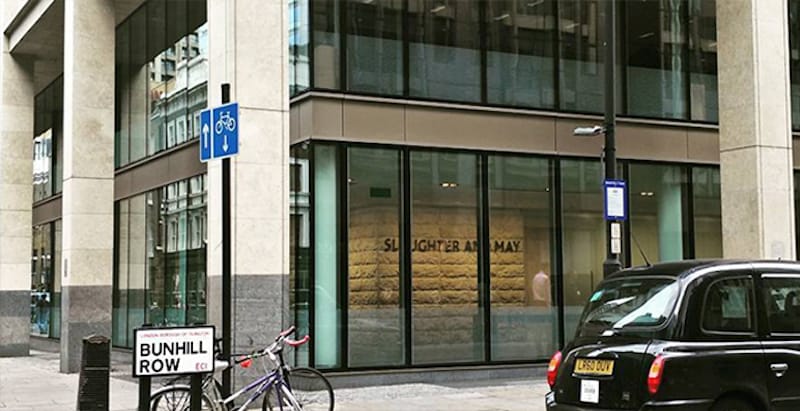Levelling up secretary Michael Gove is being called to subject himself to “questioning and scrutiny” from MPs over the controversy relating to PPE firm Medpro.
Gove, who served as chancellor of the Duchy of Lancaster during the Covid pandemic, was referenced by Baroness Mone in her recent interview with the BBC.
In the interview, conducted by Laura Kuenssberg on Sunday, Baroness Michelle Mone admitted she did not tell the full truth about her links to the PPE firm.
However, she added that she and her husband have “no case to answer”.
The Department of Health and Social Care (DHSC) has issued breach of contract proceedings over a 2020 deal on the supply of gowns.
The National Crime Agency is investigating the company.
Baroness Mone told the BBC she contacted Michael Gove at the beginning of the pandemic following a “call to arms” for Lords, baronesses, MPs and senior civil servants to help provide the “massive quantities of PPE” needed for the pandemic.
She told the BBC: “I just said, ‘We can help, and we want to help.’ And [Gove] was like, ‘Oh my goodness, this is amazing’”.
Pressed on whether she stands to benefit from the deal, Baroness Mone said: “If one day, if, God forbid, my husband passes away before me, then I am a beneficiary, as well as his children and my children, so, yes, of course”.
She said her life had been “destroyed” by allegations about their PPE profits, even though “we’ve only done one thing, which was lie to the press to say we weren’t involved”.
She said that was “not a crime”, adding: “No one deserves this.”
Shadow cabinet office minister Nick Thomas-Symonds has now called on Michael Gove to answer questions following her claim.
In a letter to Gove, Thomas-Symonds said: “This series of events has led to civil litigation and a National Crime Agency investigation.
“Yet these ongoing matters should not preclude you from addressing questions about your own involvement and the role of the government.
“Events so far expose a shocking recklessness by the Conservative government with regard to public money, and a sorry tale of incompetence in relation to the so-called ‘VIP Lane’ for procurement during the pandemic.”
The Labour frontbencher said Gove should answer questions about the so-called “call to arms” referenced by Baroness Mone.
He said: “The very least Conservative ministers owe is maximum possible transparency and there should be an urgent statement to parliament before the Christmas recess”.
He added: “It is vital that mistakes are addressed, wasted money recouped, and vital lessons learned about the conduct of Government. As a result, I call on you to take the following urgent steps:
Come before parliament yourself to update MPs on this issue and subject yourself to questioning and scrutiny;
-
Indicate what plans the Government is making to return any money to the public purse that can now be recouped;
-
Introduce a Covid Corruption Commissioner as the Labour Party is asking for to pursue those who profited from the carnival of waste and ineptitude during the pandemic. You will be aware that the estimated cost to the taxpayer of wasted, failed or overpriced PPE contracts runs into billions of pounds.
In a post of X (formerly Twitter) publicising the letter, Thomas-Symonds said: “The Baroness Mone crisis gets ever murkier for the Tories with an admission that lies were told to the public, an ongoing NCA investigation and tens of millions of taxpayers’ money at stake.
“I’ve written to Michael Gove demanding he comes to Parliament to face scrutiny”.
Following Baroness Mone’s interview on Sunday, shadow chancellor Rachel Reeves posted on X: “Failed [and] overpriced PPE contracts = £8.7bn. Public money lost to Covid fraud after warnings were ignored = £7.2bn. £15.9bn of taxpayers’ money lost [and Rishi Sunak] signed the cheques
“Labour’s Covid Corruption Commissioner will clawback every [pound] we can”.
In December 2022, Baroness Mone said she was taking a leave of absence from the Lords in order to “clear her name”.
Speaking yesterday, deputy prime minister Oliver Dowden said there were “no favours or special treatment” involved in PPE procurement and said it was “categorically not the case” that cronyism was involved in the “VIP lane”.
“The government’s intention in respect of that was to make sure that if legitimate claims came forward, we’d process them quickly”, he said.
“There were no favours or special treatment.”
Source


